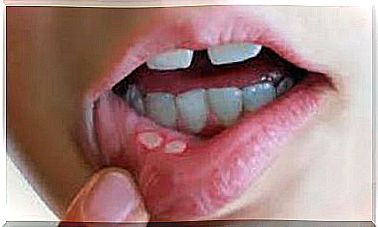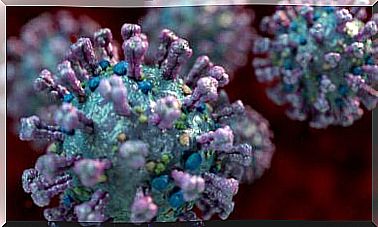Cancer In The Mouth: Risk Factors And Symptoms
If cancer occurs in the mouth, it usually affects the oral cavity or throat, less often the lips or other areas.
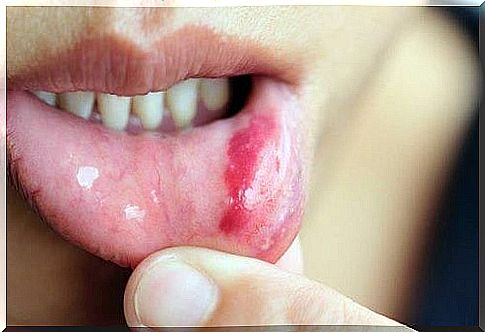
Cancer can affect all areas of the body and thus of course the mouth. One often hears about cancer in other areas of the body, such as the lungs or intestines, but pathological tissue changes can also form in the mouth. Then you will learn more about mouth cancer.
Mouth cancer?
Kick cancer of the mouth , so it is called oral cancer, throat cancer or cancer of the tongue, depending on which area is affected by mouth.
Although one rarely hears about cancer in the mouth, it is one of the ten most common types of cancer in Germany. The danger here is that hardly anyone knows that it exists and that it is usually discovered far too late.
The tragedy is that although the mouth is a very small area of the body , cancer in the mouth leads to death after an average of 5 years.
If the cancer is detected in time, the chances of a cure also increase. The sooner the better.
If it is diagnosed at an early stage, the chances of recovery are not that bad at 80%.
So it makes sense to deal with the disease. And that’s exactly what we’re going to do in this article.
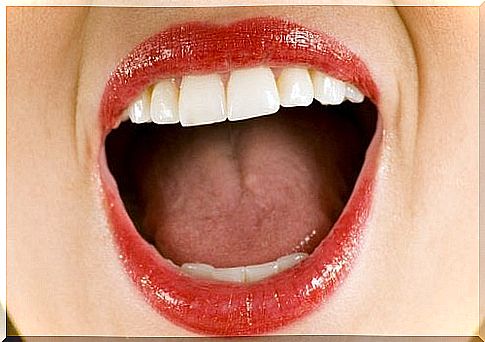
Symptoms

In contrast to the intestines, there are no prophylaxis examinations, but these are not necessary either, because everyone has what it takes to regularly examine their mouth for abnormalities.
All you need is a hand mirror and a small flashlight. In an emergency, the lamp from the cell phone is enough, so it’s not complicated!
If you discover the following abnormalities in your mouth, you should consult a doctor:
- Red stain
- White spots
- Brown spots
- Pressure points
- Unclear, non-healing wounds
Other possible symptoms that you may see in yourself (or in others) include:
- “Lump” in the throat
- difficulties swallowing
- More frequent bleeding in the mouth
- Suddenly poorly fitting prostheses
Do not hesitate to consult a doctor in these cases, because spots can also indicate a fungal disease, poorly healing wounds indicate a lack of zinc and other diseases can also be hidden behind the symptoms.
It’s not normal!
Important: first of all, cancer does not cause pain in the mouth!

Risk factors

We all have known it for a long time: A healthy diet and a healthy lifestyle are the best prophylaxis for all diseases and a simple form of life-prolonging measures that are even fun and tasty.
In the case of mouth cancer, the following bad habits are particularly responsible for increasing the risk immensely:
- Smoking increases the risk of oral cancer by up to 40 times.
- Alcohol manages to increase the risk 21x.
- Smoking and alcohol in combination can increase the risk of oral cancer up to a hundred and forty times!
- Poor oral hygiene
- Poor diet (low in vitamins A, C, beta carotene, zinc, riboflavin, and selenium)
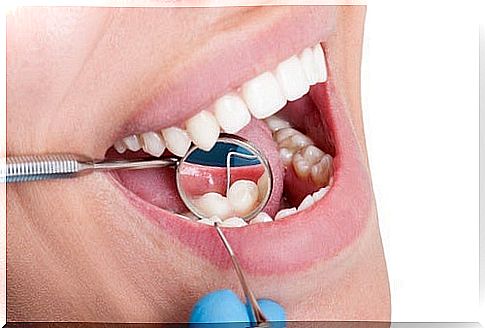
Where to go if there is a suspicion?

If you suspect that cancer is developing in your mouth, your first visit should be to the dentist. Dentists are trained to do routine checkups (which you always go to regularly, right?) To detect oral cancer as well.
However, since the most common mouth cancer occurs on the floor of the mouth and (under) the tongue, this is not always immediately apparent.
So despite regular visits to the dentist, oral cancer can still be delayed. You are responsible here yourself.
If you have now discovered something unusual with suspected cancer in your oral cavity, make an appointment with the dentist.
This will take a tissue sample from the affected area with a kind of mini-brush. This is not painful for you, but it can be very informative!
This service is covered by the health insurance company, but it is quite new, so that not all dentists offer it. If in doubt, your dentist will refer you.
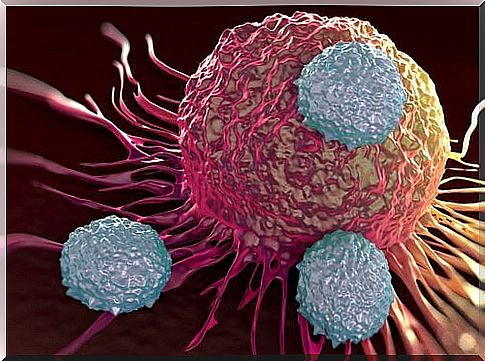
Act fast!

It is important that oral cancer is detected as early as possible. If it has already spread to the lymph nodes in the neck, it is most likely too late and metastases have formed in the body.
The cancer is usually completely removed in an operation before it can spread. To avoid disfigurement and restrictions on speaking, eating, and swallowing, the cancer should be detected as early as possible and removed as soon as possible.
If metastases have formed or the lymph nodes are affected, chemotherapy and radiation are necessary.
It is well known that hope dies last, but the chances of recovery in this case are only a meager 15%. So take a look in your mouth and get used to it so that you can act in good time!

